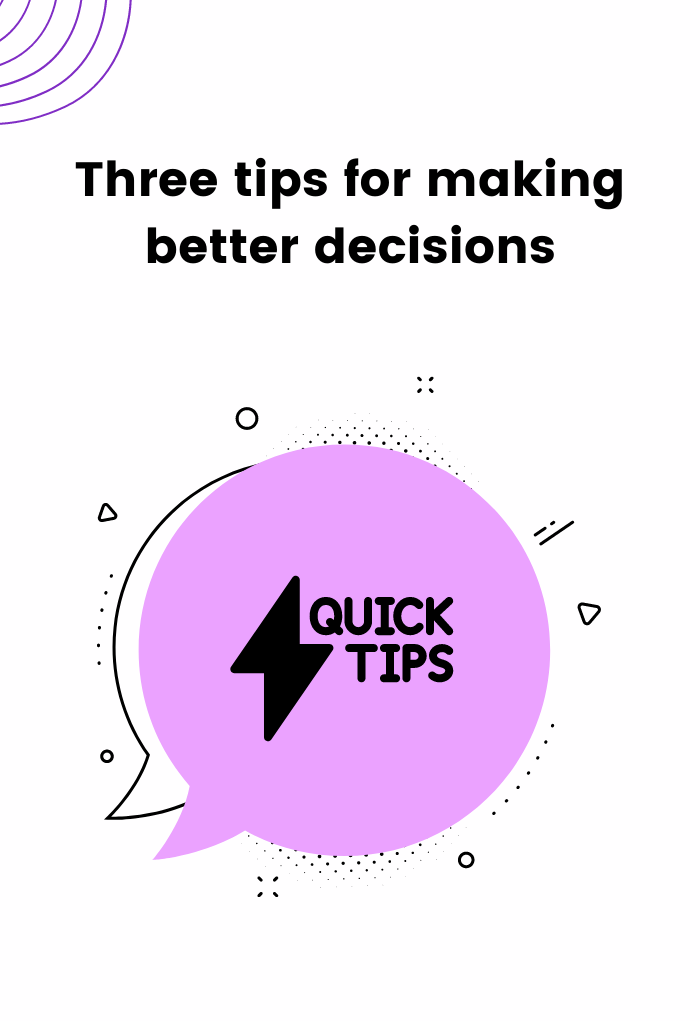Three tips for making better decisions

Parent Post
Have you ever made
Have you ever made a decision that you later look back on and regret? Or find yourself wondering, “Why on earth did I do that?”
This happens when we’re not aware of how we make decisions.
The brain doesn’t function like a computer;It functions more like a council where different mental and physiological factors compete against one another to take control.
It’s no wonder many of us tend to overthink things and become indecisive in the process. So how can we make better decisions?
Reduce decision fatigue. If
Reduce decision fatigue.
If we make many decisions throughout the day, it gets mentally tiring, and we make worse decisions over time. The solution? Set up your life in a way you don’t need to make many decisions. Here are a few things to reduce the decisions you have to make daily.
- Delegate some decisions to others: Don’t micromanage everything and trust other people to do things well.
- Create rules and habits: Habits and rules take away decisions. In a way, you’re automating your behavior so you don’t have to think a lot.
- Set micro-deadlines for decisions: Try to set micro-deadlines for certain decisions. When the decisions are spaced out like this, you act without pondering on your future choices.
Manage your attention.Information overload
Manage your attention.
Information overload is a real problem in our 24/7 connected world. But more information is not better because it often leads to indecision.
Media is designed to monopolize our time. Managing your attention helps you to limit your information consumption. It’s an easy way to avoid indecision.
Make time for your
Make time for your decisions.
We often make bad decisions when we’re tired. The easiest thing you can do to improve your decision-making is to NOT decide on anything when you’re tired.
When you can make a better decision at a later moment, it’s smart to delay your decision.
Procrastination is not always wrong.
Any decision is better
Any decision is better than no decision.
Sometimes, you decide not to make a decision. The worst thing is to let something like that linger in your mind every day. It bothers you.
When you get rid of the things that clutter your mind, you will have more energy and clarity to face your decisions. And that alone will make the quality of your decisions better.
There are two mental
There are two mental shortcuts when making time for decisions.
- Do not decide on something big when you’re tired or emotional.
- When you’re working on something else, and someone asks you a “quick question,” say, “Not now.”
Always make time for a decision, whether 1 minute or 1 hour — depending on how important it is.
Make sure you are doing one thing at a time. Don’t read a book and decide on a work project at the same time.
Let decisions be intentional and have a rested and clear mind when you decide something.

